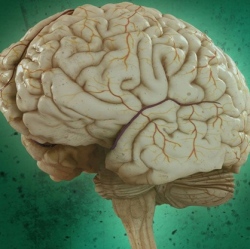
The South Korean government is planning to invest over one billion US dollars into basic brain research in over the next five years to secure world-class source technology. For the new plans, ministries will inject a total of 1.38 trillion won (US$1.27 billion) into their budgets over the next five years.
The Ministry of Science and ICT(MSIT) held the 30th Bio Technology Master Plan Council meeting on May 8 and voted for Brain Research Innovation 2030, which represents the third Brain Research Promotion Plan.
South Korea established the Korea Brain Research Institute in 2017. The institute specializes in brain research and has been strengthening basic studies by increasing research budgets 14.6 percent a year on average from 49.3 billion won (US$45.69 million) in 2008 to 168 billion won (US$155.69 million) in 2017.
The institute still lags behind other nations according to their internal reporting with only 77 percent of the world’s best level work being done in 11 promising technologies, such as brain optogenetics, cerebral organoid, cognitive enhancement, brain stimulation and activity measurement technologies, failing to secure world-class source technologies.
Based on the plan, the government will carry forward large projects, such as a “Brain Grand Challenge Project” to develop core technology that can change the paradigm of brain research and “Korea brain initiative” to fundamentally understand the brain. The plan is to develop five of the world’s best core technologies, including brain specific gene decoding and revision technologies, and construct brain neural networks in cerebral cortex which may be associated with higher human brain function.
The government will also make the best use of artificial intelligence (AI) to investigate the principles of the brain and reuse the identified brain principles to develop next-generation AI technologies, brain-machine interfaces (BMIs) and neuromorphic chips in its bid to develop intelligent technologies converged with the brain principles.
Additionally, the project aims to bring about “healthy brain services” tailored to different life stages for people through brain research. Pushing forward its new plans regarding national responsibility for dementia care, the government aims to slow the outbreak of dementia by five years and reduce the growth of dementia patients by 50 percent after 2030 and strengthen investment in brain diseases which have higher social requirements, such as depression, addiction and autism.
The government is planning to grow such research and development results into a "brain industry" through networks between enterprises, investors and researchers. It aims to foster more than 10 brain companies with sales of over 100 billion won (US$92.39 million) by supporting three-stage commercialization for small and mid-size and venture firms.
